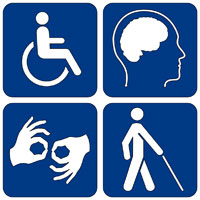“No idiot, or insane person, shall be entitled to the privileges of an elector.” That is how Article V, Section 6 of the Ohio State Constitution currently reads, and it is the subject of the most recent meeting of the Bill of Rights and Voting Committee of the Ohio Constitutional Modernization Commission.
At the time of its ratification in 1851, “idiot” was commonly used to describe persons of diminished mental capacity and “insanity” signified a more temporary condition. The purpose of this provision was to disqualify from voting persons who are mentally incapacitated.
When meeting in 1970, the Ohio Constitutional Revision Commission agreed that it would be best to remove the references to “idiot[s]” and “insane person[s].” Moreover, they noted that the provision is extremely vague, writing that:
The lack of procedure for determining who is “insane” or an “idiot” could allow persons whose opinions are unpopular or whose lifestyles are disapproved to be challenged at the polls, and they may lose their right to vote without the presentation of any medical evidence whatsoever.[1]
For reasons that are not clear, the General Assembly did not present this issue to voters. It remains a section of our constitution that is not only problematic because of the way in which it uses pejorative terms, but also because of its vagueness. This provision could be used to disqualify any voter whom poll workers deem incompetent.
During the meeting this past Thursday, 11 November 2015, University of Akron School of Law Emeritus Professor Wilson Huhn testified on behalf of the ACLU.
Read Professor Will Huhn’s testimony to the Constitutional Modernization Committee.
“I think that the Authors of that notable instrument [the US Constitution] intended to include all men, but they did not intend to declare all men equal in all respects. They did not mean to say all were equal in color, size, intellect, moral developments, or social capacity. They defined with tolerable distinctness, in what respects they did consider all men created equal – equal in ‘certain inalienable rights, among which are life, liberty, and the pursuit of happiness.’ … This they said, and this they meant.” –Abraham Lincoln, June 26, 1857
In addition to teaching Special Education, Professor Huhn taught constitutional law at the University of Akron School of Law. In his free time he has organized and coached a multitude of adaptive recreation programs in eastern Cuyahoga County for people with disabilities. In addition to providing excellent testimony on the substance of the constitution, he also spoke about his son as an example of a person who is affected by this poorly worded legislation.
Our oldest child exemplifies the concrete, practical approach to life that so many of his peers exhibit. His tested IQ is about 50—moderate to severe impairment. Yet he lives independently, leads a very active social life, works part-time, and takes flying lessons. At the age of 18 he could not read, but today at the age of 35 he reads at about a third or fourth grade level.
Persons with developmental delay have a vivid understanding of the public policies that affect them. Like all of us they are influenced by the media, family, and friends. But the vast majority of them are fully capable of intelligently and independently exercising the precious right to vote. For this reason the Ohio Constitution and Ohio law must vigorously protect their right to vote.
The committee settled on the following language after Professor Huhn’s poignant testimony:
The General Assembly shall provide under law that no person who has been determined to lack the mental capacity to vote shall have the rights and privileges of an elector during the time of incapacity.
It passed the committee’s second hearing with a vote of seven to two and a third (and final) hearing is scheduled for January. Stay tuned for an upcoming blog about the history of voting rights for people with disabilities in Ohio and around the country.
[1] Ohio Constitutional Revision Commission (1970-1977), Proceedings Research, Volume 5, Election and Suffrage Committee Report, 2502, 2515, (Apr. 22, 1974),
http://www.lsc.ohio.gov/ocrc/v5%20pgs%202195-2601%20elections-suffrage%202602-2743%20local%20govt.pdf (last visited Nov. 10, 2015).

